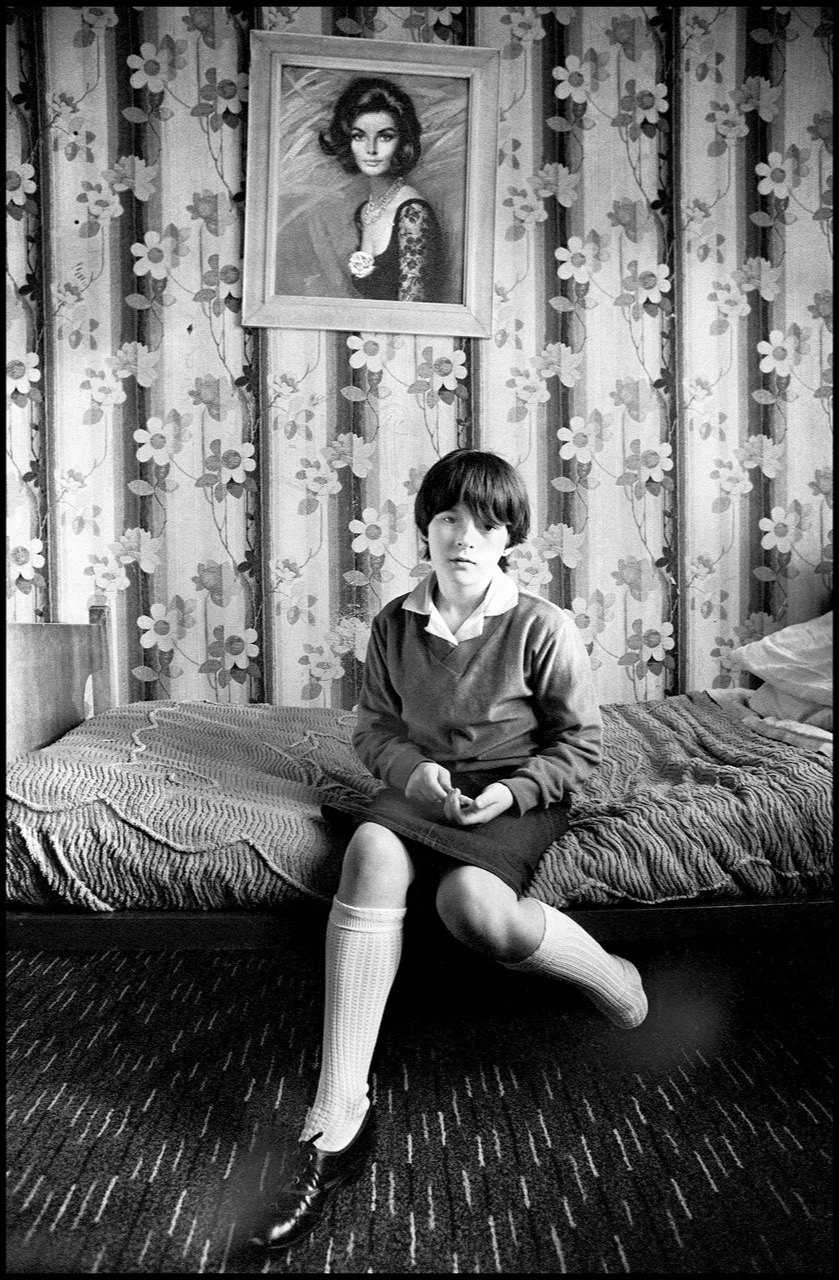Capturing 1980s Belfast at the height of the Troubles
- Text by Miss Rosen
- Photography by Judah Passow

The Troubles reached a fever pitch in 1982, as the Irish National Liberation Army (INLA) struck hard, killing more British security forces than ever before. The grievous harm to the innocent was made plain on Thursday, September 16, when the INLA exploded a bomb hidden inside a drain pipe along a balcony in Cullingtree Walk, Divis Tower, Belfast.
Though aimed against a British Army foot patrol, the blast had the unintended effect of killing two local children, Stephen Bennet, 14, and Kevin Valliday, 12, along with soldier Kevin Waller, 20. Three other civilians and one soldier were also injured in the explosion.
It just so happened that earlier that year, Israeli photojournalist Judah Passow spent a couple of weeks documenting Divis Flats for the Observer magazine to create a portrait of a people and a place. These photographs have been published in Divis Flats Belfast 1982 (Café Royal Books).

The story came about one Saturday evening in January, when Passow read a report by the European Union that named Divis Flats as the worst public housing in Europe.
He remembers, “This story had all the ingredients for a remarkable essay: appalling housing conditions, teenage car-jacking gangs, elderly residents abandoned by a dysfunctional sectarian municipal welfare system, lethal rivalry between paramilitary organisations, British soldiers patrolling the neighbourhood – and, lousy weather.”
Passow, who had been covering the Soviet invasion of Afghanistan, the Israeli invasion of Lebanon, and the Palestinian uprising in Gaza and on the West Bank, came to Divis with an open mind. “I had no particular political or sectarian agenda,” he says.
“I was drawn to Divis by the need to understand why people have a seemingly limitless capacity for inflicting pain on each other. All kinds of pain – physical, emotional, spiritual, psychological. During my time there, I came to see Divis as a sort of metaphor, as a smaller, local version of the larger, disturbing world, as a war zone, as a place of material poverty and social deprivation.”

Passow took great care to create mutual empathy and earn the respect of his subjects. “Once that trust has been established, people take you into their confidence and into their lives.”
The photographer learned how residents fought back against a public housing system that only exacerbated their problems. His photographs bear witness to their striving to maintain dignity, sanity, and humanity amidst poverty and strife.
“The biggest problem I faced was trying to show the IRA’s relationship to a story about urban deprivation. I needed to earn enough trust by the paramilitary ranks living in the flats to move beyond the access they gave me to their family life, and on to their role as foot soldiers in a grim political battle,” he says.
“It took a while, but when that moment arrived, I felt that the story would now be able to tell itself with journalistic substance and authority. Taking pictures in these fraught situations demands that a photographer bring passion and commitment to using the camera as a tool for asking uncomfortable questions in the search for truth.”



Divis Flats Belfast 1982 is out now on Café Royal Books.
Follow Miss Rosen on Twitter.
Enjoyed this article? Like Huck on Facebook or follow us on Twitter.
You might like

Jake Hanrahan: “Boys can cry, but we don’t all fucking want to”
Hard Feelings — In the latest edition of our column on masculinity and fatherhood, Rob Kazandjian speaks to the conflict filmmaker-journalist and Popular Front founder about his childhood, the found family and community at his Muay Thai gym, and the “complete counterculture” of ‘no rules’ fighting.
Written by: Robert Kazandjian

Euphoric portraits of queer joy and resistance at Trans Pride Brighton
Let us piss — Now over a decade old, the event grew to become Europe’s largest trans pride march. In a year when trans rights have come under the microscope more than ever, we went to this year’s edition, finding grassroots unity and collective rage.
Written by: Ella Glossop

Remembering the radical anti-nuclear Greenham Women’s Peace Camp
Life at the Fence — In the early ’80s, a women’s only camp at an RAF site in Berkshire was formed to protest the threat of nuclear arms. Janine Wiedel’s new photobook revisits its anti-establishment setup and people.
Written by: Miss Rosen

A new documentary traces the rise, fall and cratering of VICE
VICE is broke — Streaming on MUBI, it’s presented by chef and filmmaker Eddie Huang, who previously hosted travel and food show Huang’s World for the millennial media giant.
Written by: Ella Glossop

Warm, tender photos of London’s amateur boxing scene
Where The Fire Went — Sana Badri’s new photobook captures the wider support networks and community spirit around the grassroots sport, as well as the significance of its competitions to the athletes who take part.
Written by: Isaac Muk

We are all Mia Khalifa
How humour, therapy and community help Huck's latest cover star control her narrative.
Written by: Alya Mooro

